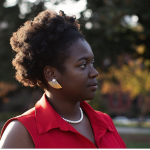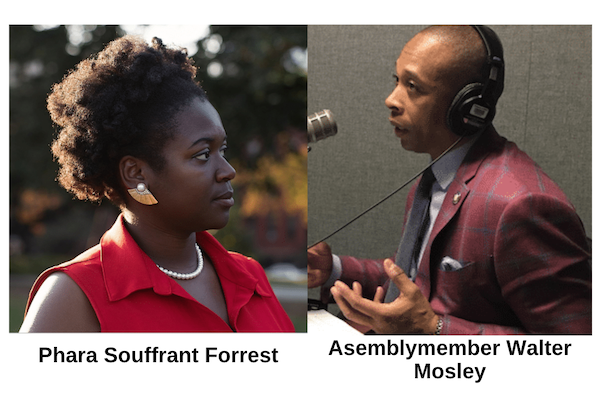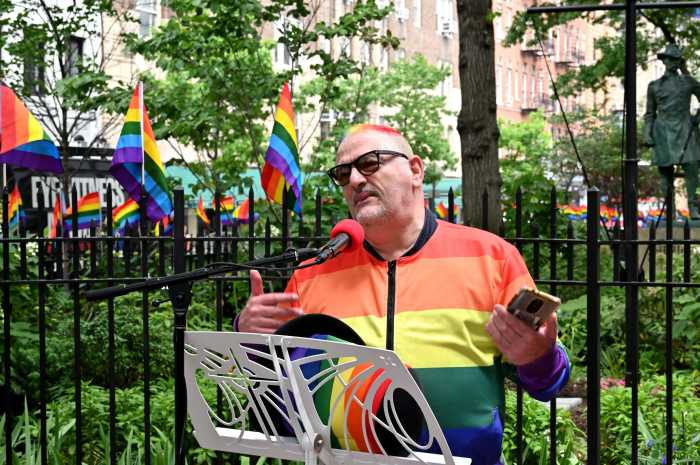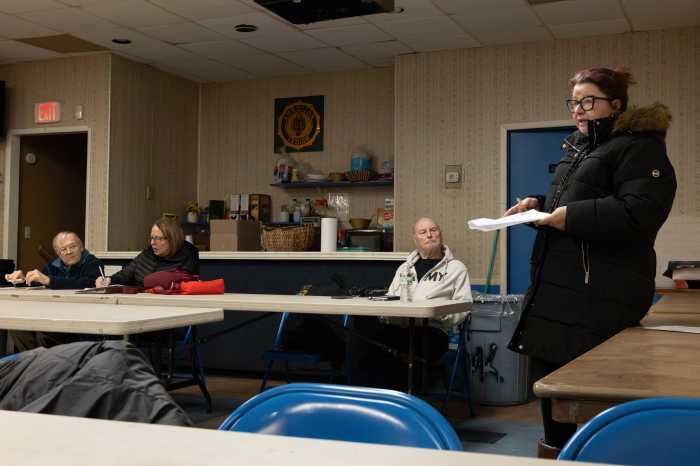Candidates looking for support from the Democratic Socialists Of America (DSA) should be prepared to share proprietory information on its campaign and possibly hire its members if they want their support.
According to a DSA candidate survey that KCP obtained, candidates seeking the socialist party support are asked how much money they will need to successfully compete in their race, who will run their field program and if they are willing to collaborate with DSA on managing the field plan including keeping all data on voter contact collection.


The survey features an interview of Phara Souffrant Forrest, the DSA candidate running against incumbent Assemblymember Walter Mosley (D-Fort Greene, Clinton Hill, Prospect Heights, Crown Heights) in next year’s primary.
Forrest stated she is already an active DSA member and agreed to tow the DSA party line with no exceptions.
Forrest agreed to work hand-in-hand with the DSA on her campaign and hinted that she will hire DSA organizers if elected.
“If I win, there will be no room for the standard politico type of person on my staff. If you are not for change then you can get out. Maybe the fiscal guy/gal should be from Ivy League School though. I have to properly manage the money because we can’t get too radical with the IRS…yet!” Forrest answered.
“I attended my first DSA event recently and enjoyed it. I plan to get more involved in DSA so that I can continue to learn about the issues and policies that members are passionate about. I think it is important that any candidate that is endorsed by DSA is accountable to the organization once they are elected to office,” she answered in another question.
Forrest also towed the DSA Party line when it came to housing justice, in which she pointed toward nationalizing all affordable housing and taking property,” from bad landlords and giving them to the people.”
Neither the survey nor Forrest mentioned or addressed the city’s Third Party Transfer program, which saw the city’s attempt to take millions of dollars of generational wealth out of the black and brown communities and give their property to public/private non-profits.
And while the survey asks candidates to pledge not to take any campaign contributions from for-profit corporations or for-profit corporate PACs, they make no mention of taking money from nonprofit executives who stand to profit greatly from the taking of private property.
The DSA survey also does not address the issue of out-of-state donations – big and small – that have been influential in paying for local campaigns such as the recent District Attorneys race in Queens.
Emails to Forrest’s campaign went unanswered, but Megan Magray, co-coordinator for NYC-DSA’s Brooklyn Electoral communications committee defended the survey and the DSA possibly being able to gain financially and through patronage jobs should their favored candidates win.
“Like any other political organization, NYC-DSA considers fundraising as a factor when weighing a campaign’s viability — especially given that our endorsed candidates are running grassroots campaigns and have vowed to not accept donations from the real estate lobby or corporate PACs. Given that an endorsement from NYC-DSA comes with robust field support, it’s strategically important for our field volunteers to be able to work closely with campaign staff so we can properly allocate our resources and help build winning campaigns,” said Magray.
“We’re excited to throw our weight behind Phara, a nurse and tenant organizer, and the rest of our endorsed candidates — all of whom are committed to a world in which housing is a human right,” she added.
But one longtime progressive North Brooklyn source says the DSA’s attempt to run a slate of candidates is more about power-grabbing on the part of DSA, who are mainly white gentrifiers who are getting too cocky and now want to take power in Brooklyn.
“It was one thing to take down the IDC [the State Senate Independent Democratic Conference], but a lot of people who have been with them [DSA] over the years now see them as coming after everyone. It’s becoming new residents versus old residents. The new powerbrokers have no relationships with organizations with the community, and they don’t understand the effect they will have on other long term community organizations ho have been doing the job,” the source said.
The source noted, for example, that during the recent change in rent laws, both Mosley and Assemblywoman Diana Richardson (D-Crown Heights, Lefferts Garden, Flatbush) fought tooth and nail against the real estate lobby to pass the new rent laws and yet now they are running somebody against Mosley.
“They want to end the status quo and start another with a quid pro quo kind of establishment,” the source said.










